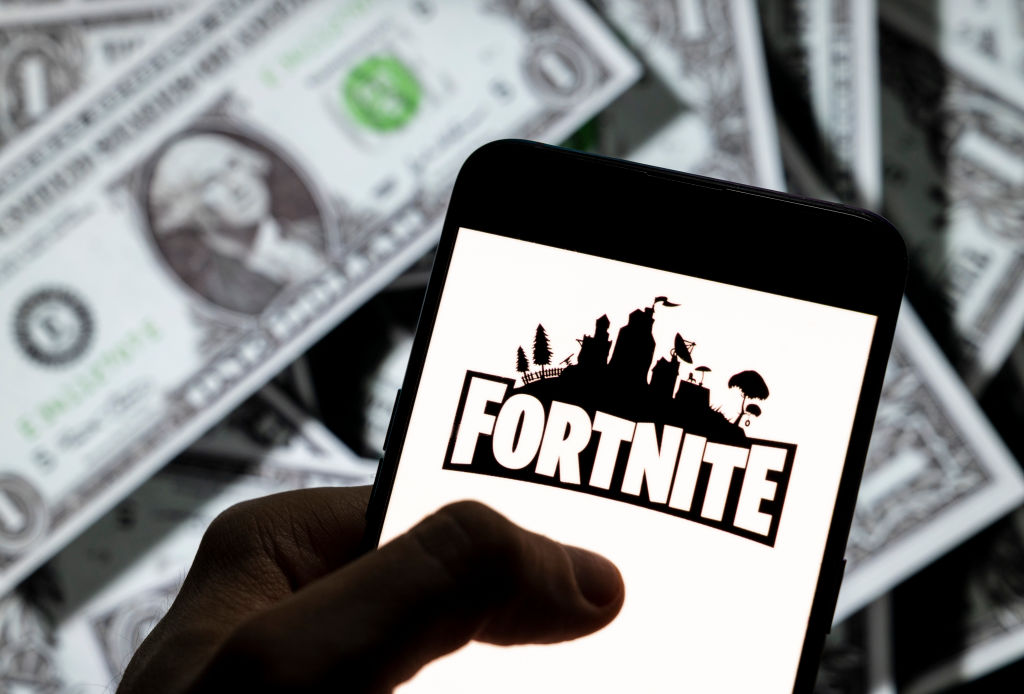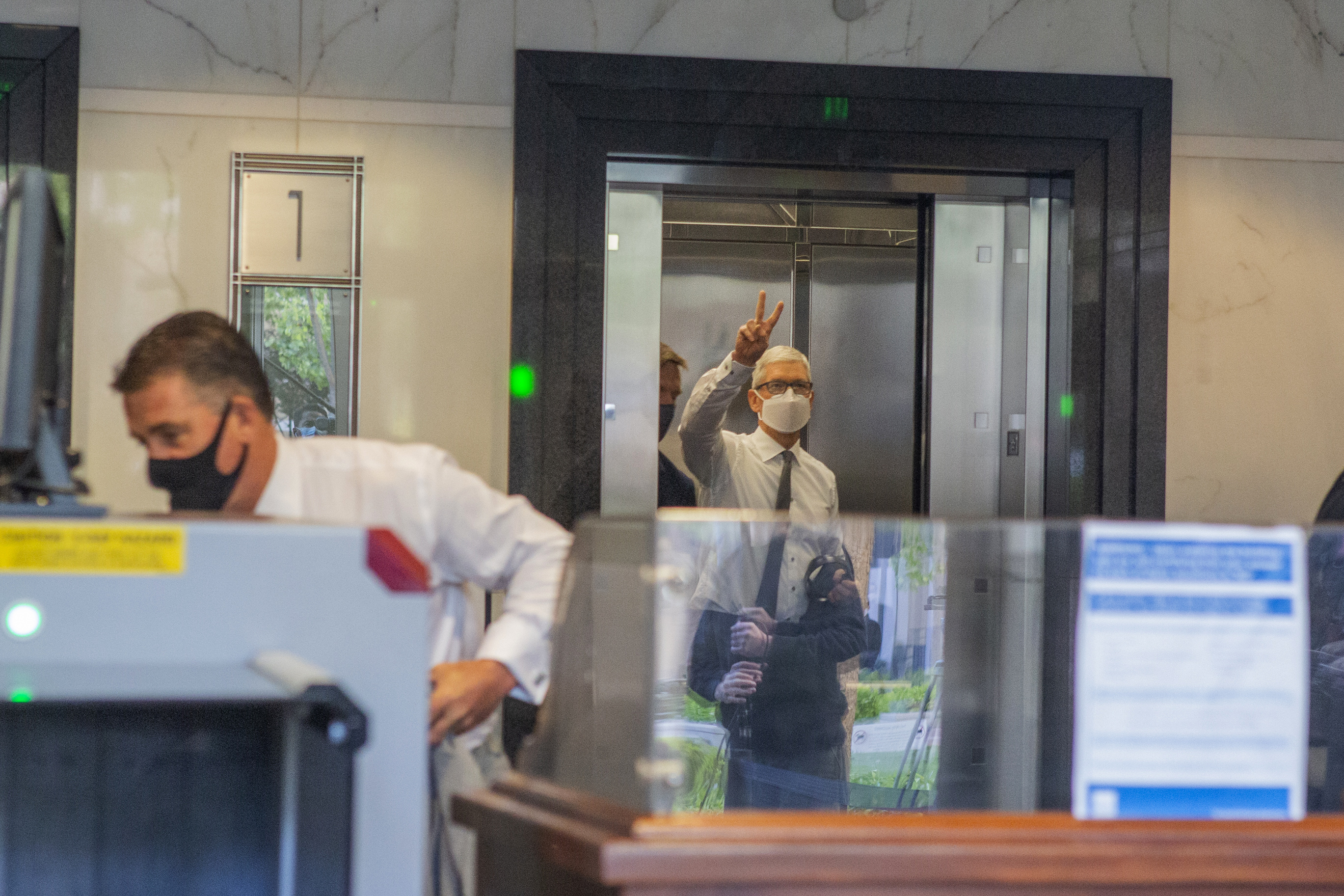Epic wins big in Apple trial verdict
But this party's just getting started.

Judge Yvonne Gonzalez Rogers has issued her ruling in the Epic v Apple case, and they'll be crying into their cappuccinos in Cupertino. The case was heard earlier this year in the US District Court of Northern California and centred around Epic's claim that Apple's insistence that developers use Apple's in-app payment system on iOS is anti-competitive, and taking advantage of a monopoly position.
Here's a full explainer of the arguments, and a breakdown of Apple's defence.
Judge Rogers agreed with Apple on almost all counts, but one big victory—for now—went to Epic. The court ruled that Apple did violate California's Unfair Competition Law, and has ordered Apple to change its iOS app policies within 90 days.
Apple won the affirmation that its business model isn't broadly monopolistic, alongside a minor counterclaim about Fortnite royalties. Because Epic breached its contract with Apple, it must now pay Apple around $3 million as a cut on Fortnite earnings on iOS between August and October 2020, plus a further 30% on any other earnings from November 1 through to the date of the judgement. I doubt Tim Sweeney will be losing any sleep over that.

What will have Sweeney doing cartwheels, however, is the permanent injunction issued by the court relating to the violation of California's Unfair Competition Law. The injunction, dated September 10 2021, will come into force in 90 days, and reads as follows:
"Apple Inc. [...] are hereby permanently restrained and enjoined from prohibiting developers from (i) including in their apps and their metadata buttons, external links, or other calls to action that direct customers to purchasing mechanisms, in addition to In-App Purchasing and (ii) communicating with customers through points of contact obtained voluntarily from customers through account registration within the app."
This means that, as happened in the South Korean courts last week, the court has ruled Apple cannot stop apps from pointing customers towards their own 'purchasing mechanisms'. The ruling does clarify that these will be in addition to Apple's own In-App Purchasing system, but it's crystal-clear that Apple has to allow apps to send users to third-party payment services, and has 90 days to do it.
Keep up to date with the most important stories and the best deals, as picked by the PC Gamer team.
The full ruling spells out exactly what the judge has—and hasn't—declared. First of all, the court did not find that Apple has a monopoly: Under the Californian legal definition of such, "the court cannot ultimately conclude that Apple is a monopolist under either federal or state antitrust laws."
"While the Court finds that Apple enjoys considerable market share of over 55% and extraordinarily high profit margins, these factors alone do not show antitrust conduct. Success is not illegal," reads the ruling.
"Success is not illegal" is at high risk of becoming a new Silicon Valley slogan, and Apple itself referenced the line in a short statement released after the ruling:
"Today the Court has affirmed what we’ve known all along: the App Store is not in violation of antitrust law. As the Court recognized ‘success is not illegal.’ [...] We remain committed to ensuring the App Store is a safe and trusted marketplace that supports a thriving developer community."

The judgement went the way it did, however, because "Apple's anti-steering provisions hide critical information from consumers and illegally stifle consumer choice," says the Court. "When coupled with Apple's incipient antitrust violations, these anti-steering provisions are anticompetitive and a nationwide remedy to eliminate those provisions is warranted."
In other words, the Court has ruled that it's unfair for Apple to prevent app makers from advertising their own prices and purchase methods. In another part of the ruling, the Court also takes issue with the arbitrariness of Apple's 30% commission fee, noting that it was set "almost by accident" and "without considering operational costs, benefit to users, or value to developers."
"The evidence here shows that, unlike the increased merchant fees in Amex, Apple's maintenance of its commission rate stems from market power, not competition in changing markets," reads the ruling.
Epic CEO Tim Sweeney has taken to Twitter to reiterate some of Epic's slogans in what will be an ongoing battle.
Today’s ruling isn't a win for developers or for consumers. Epic is fighting for fair competition among in-app payment methods and app stores for a billion consumers. https://t.co/cGTBxThnsPSeptember 10, 2021
Sweeney went on to add "Fortnite will return to the iOS App Store when and where Epic can offer in-app payment in fair competition with Apple in-app payment, passing along the savings to consumers. Thanks to everyone who put so much time and effort into the battle over fair competition on digital platforms, and thanks especially to the court for managing a very complex case on a speedy timeline. We will fight on."
Sweeney's saying Fortnite will return when Apple's done what the judge says, basically, though his qualified "when and where" is perhaps because this could be in 90 days, or take a lot longer.
Apple is all-but-guaranteed to appeal this ruling, but make no mistake: it's a huge win for Epic, and in some respects a surprising one. As Apple's statement in response to the ruling makes clear, it will continue to fight for its right to insist on iOS using its own In-App Purchasing for reasons of security and consumer trust. This will run and run, though Apple will nevertheless have to get real about how it's going to implement what the courts require.
(One other place where things could get complicated is in Apple's interpretation of the injunction. Epic says it won't bring Fortnite back to iOS unless it can provide its own in-app payment system, but Apple could interpret the injunction to mean that it only needs to allow apps to include links to websites where payments can be made. The court will decide which interpretation is correct, if it comes down to it.)
On a lighthearted note, the ruling managed to squeeze some humor into its interpretation of the law. This is a particularly good line: "Although Epic Games claims that it would not have a viable way of monetizing Fortnite without being able to sell in-app content, the record shows it monetizes Fortnite in nine other ways."
And then there's this, about the Fortnite bananaman who briefly became the center of attention during the trial:
Best thing about the Epic/Apple ruling? Comedy footnotes about Peely. pic.twitter.com/8E9n78HwM7September 10, 2021

Rich is a games journalist with 15 years' experience, beginning his career on Edge magazine before working for a wide range of outlets, including Ars Technica, Eurogamer, GamesRadar+, Gamespot, the Guardian, IGN, the New Statesman, Polygon, and Vice. He was the editor of Kotaku UK, the UK arm of Kotaku, for three years before joining PC Gamer. He is the author of a Brief History of Video Games, a full history of the medium, which the Midwest Book Review described as "[a] must-read for serious minded game historians and curious video game connoisseurs alike."

